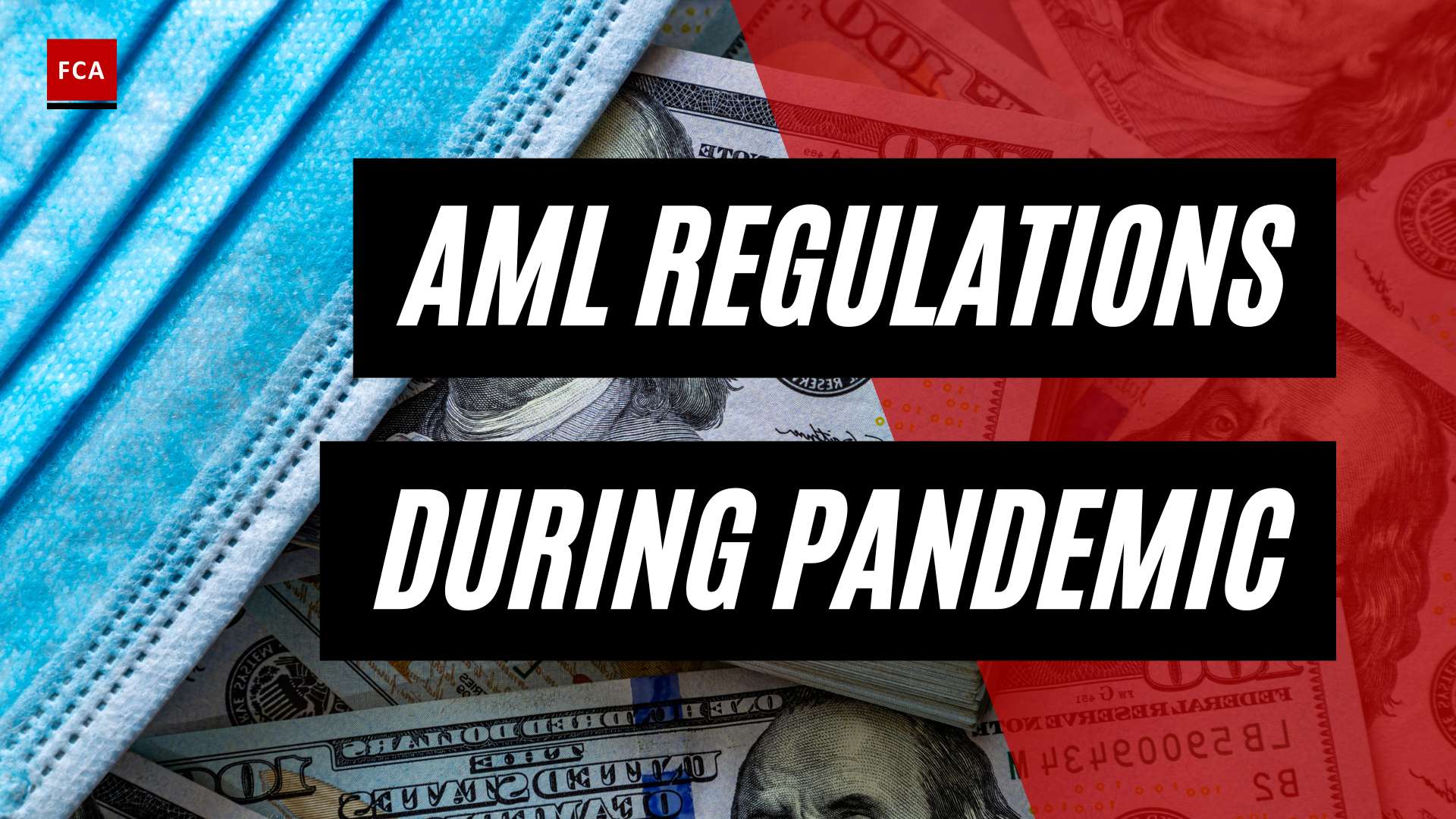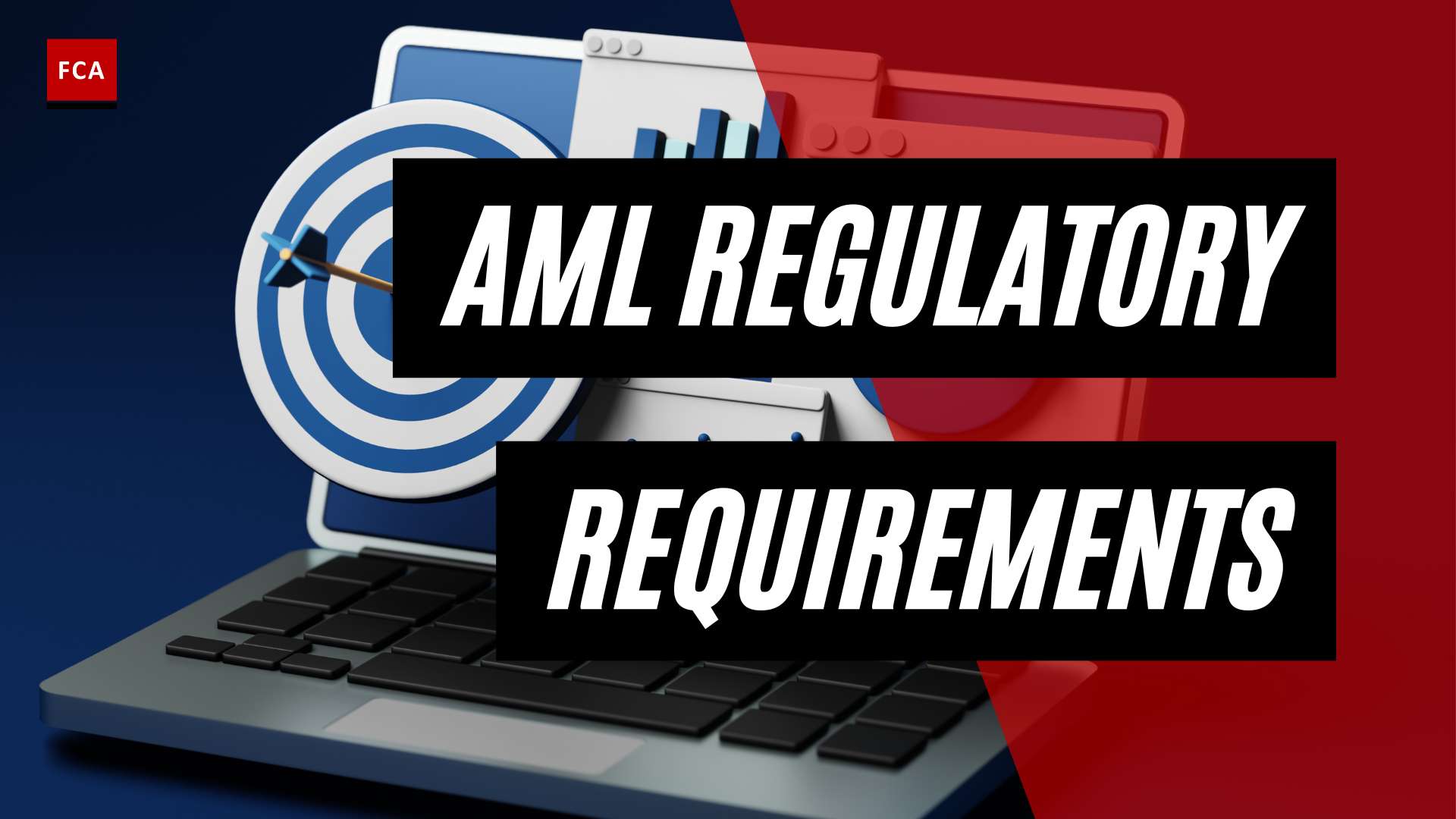Money Laundering Through Real Estate
Money laundering through real estate poses significant risks to the financial system and the integrity of real estate markets. Understanding these risks and the impact they have on the industry is crucial for effective money laundering prevention.
Understanding the Risk
The real estate sector is considered vulnerable to money laundering due to various factors outlined in a study by the International Journal of Law and Economics. These factors include the ability to conceal the ultimate beneficial ownership of properties, the involvement of third parties in transactions, and the lack of transparency in real estate deals. These elements contribute to the increased risk of money laundering activities in the real estate industry. It is essential for professionals working in compliance, risk management, anti-money laundering, and anti-financial crime to be aware of these risks and take appropriate measures to mitigate them (International Journal of Law and Economics.
Impact on Real Estate Markets
Money laundering through real estate transactions can have severe consequences for the integrity of real estate markets. Illicit funds entering the market distort property prices, making it difficult for genuine buyers to afford properties. This can lead to an inflated market, making it challenging for individuals and families to access affordable housing. Moreover, money laundering activities can undermine the stability and transparency of the real estate sector, eroding public trust in the industry.
Recognizing the risks and impact of money laundering on real estate markets, regulatory bodies such as the Financial Action Task Force (FATF) have identified real estate as a high-risk sector for money laundering and terrorist financing. FATF has recommended that countries establish regulations and implement preventive measures to combat money laundering in the real estate sector. These measures include customer due diligence, verification of customer identities, and assessing the money laundering risk in real estate transactions. By implementing these recommendations, countries can safeguard their real estate markets and protect them from the detrimental effects of money laundering (International Journal of Law and Economics.
Understanding the risks associated with money laundering through real estate and the impact on real estate markets is the first step in developing effective strategies to prevent and combat financial crime. By implementing robust anti-money laundering regulations and ensuring compliance within the real estate sector, professionals can help safeguard the integrity of the industry and contribute to the overall integrity of the financial system.
Red Flags for Real Estate Money Laundering
To effectively prevent money laundering through real estate transactions, it’s crucial to be aware of the red flags that may indicate illicit activity. By recognizing these warning signs, professionals in compliance, risk management, anti-money laundering, and anti-financial crime can stay vigilant and take appropriate measures. Here are three common red flags associated with real estate money laundering:
Cash Transactions
Cash transactions in real estate deals can raise suspicions of potential money laundering. Cash payments allow individuals to obscure the source of funds and avoid leaving a paper trail. Large amounts of cash used for property purchases, especially when they are inconsistent with the buyer’s known income or financial history, should be treated with caution. It’s important for professionals to exercise due diligence and report any suspicious cash transactions to the relevant authorities. By implementing robust internal controls and conducting thorough customer due diligence, organizations can mitigate the risk associated with cash-based real estate transactions.
Sales Involving Criminals or PEPs
Real estate transactions involving known criminals or politically exposed persons (PEPs) can be an indication of money laundering. Criminals may use real estate purchases to launder illicit funds, while PEPs may exploit their positions for personal gain or to conceal corrupt activities. Identifying the involvement of these individuals in real estate deals requires comprehensive customer due diligence and enhanced monitoring. By conducting thorough background checks and verifying the identities of the parties involved, professionals can help prevent money laundering through sales associated with criminals and PEPs.
Shell Companies and Hidden Ownership
The use of shell companies and hidden ownership structures is a significant concern in real estate money laundering. Criminals may establish shell companies or trusts to obscure the true ownership of properties, making it difficult to trace the origins of funds. These entities can be used to purchase properties and launder illicit money through real estate transactions. To address this risk, international bodies like the Financial Action Task Force (FATF) recommend that countries establish beneficial ownership registries to enhance transparency in real estate deals and deter money laundering. Professionals should exercise caution when dealing with properties owned by shell companies and undertake thorough due diligence to identify the ultimate beneficial owners.
By remaining vigilant and recognizing these red flags, professionals can play a crucial role in preventing money laundering in the real estate sector. Implementing effective customer due diligence procedures, reporting suspicious activities, and promoting awareness and education within the industry are vital steps toward combating real estate money laundering. For more information on real estate money laundering prevention, be sure to explore our articles on real estate money laundering regulations and real estate money laundering investigations.
Preventing Real Estate Money Laundering
To effectively combat money laundering through real estate, real estate professionals must take proactive measures to prevent illicit activities. Implementing robust anti-money laundering (AML) practices is crucial in mitigating the risk and ensuring compliance with regulations. This section explores three key strategies for preventing real estate money laundering: customer due diligence, suspicious activity reporting, and training and education.
Customer Due Diligence
Customer due diligence (CDD) is an essential component of an effective AML program in real estate. It involves verifying the identity of buyers and sellers, understanding the source of funds, and assessing the purpose of the transaction. By conducting thorough due diligence, real estate professionals can identify and mitigate potential risks associated with money laundering.
CDD measures typically include:
- Obtaining and verifying identification documents, such as passports or driver’s licenses, from all parties involved in the transaction.
- Conducting enhanced due diligence (EDD) for high-risk individuals or transactions, such as politically exposed persons (PEPs) or transactions involving a high volume of cash.
- Performing ongoing monitoring of customers and transactions to detect any suspicious activities.
Real estate professionals should follow the guidelines provided by regulatory bodies, such as the Financial Action Task Force (FATF), to ensure the adequacy of their CDD procedures. These guidelines recommend implementing risk-based AML programs that include policies, procedures, and internal controls to mitigate the risks of money laundering and terrorist financing.
Suspicious Activity Reporting
Real estate professionals play a vital role in identifying and reporting suspicious activities that may indicate money laundering. The United States Department of the Treasury’s Financial Crimes Enforcement Network (FinCEN) requires certain individuals and entities involved in real estate transactions, known as “covered persons,” to file a Suspicious Activity Report (SAR) when they suspect a transaction involves money laundering or terrorist financing (nar.realtor).
Real estate professionals should be vigilant for red flags that may indicate potential money laundering, such as:
- Large cash transactions without a reasonable explanation.
- Transactions involving individuals with a known criminal background or connections to organized crime.
- Complex transactions structured to hide the true ownership of the property, including the use of shell companies.
When suspicious activity is identified, real estate professionals should promptly report it to the appropriate authorities, such as FinCEN. By doing so, they contribute to the collective effort in combating money laundering within the real estate sector.
Training and Education
Training and education are key components of a comprehensive AML program for real estate professionals. By staying informed about the latest trends, regulations, and best practices, they can effectively identify and prevent money laundering activities.
Training programs should cover topics such as:
- Recognizing red flags and suspicious activities related to money laundering in real estate transactions.
- Understanding the obligations and requirements imposed by AML regulations.
- Knowing how and when to file SARs and report suspicious activities to the appropriate authorities.
Ongoing training ensures that real estate professionals are equipped with the knowledge and skills necessary to navigate the complexities of money laundering prevention. By investing in training and education, they can actively contribute to the collective effort in combating money laundering within the real estate industry.
Preventing real estate money laundering requires a proactive approach that includes rigorous customer due diligence, timely reporting of suspicious activities, and continuous training and education. By implementing these strategies, real estate professionals can play a crucial role in safeguarding the integrity of the real estate market and protecting it from exploitation by money launderers.
International Efforts to Combat Real Estate Money Laundering
Addressing the issue of money laundering through real estate requires a coordinated global effort. Various international organizations and bodies have recognized the risks associated with real estate transactions and have put forth recommendations to combat money laundering in this sector. Two key initiatives in this regard are the Financial Action Task Force (FATF) recommendations and the emphasis on collaboration and information sharing.
FATF Recommendations
The Financial Action Task Force (FATF) has identified real estate as a sector at high risk for money laundering and terrorist financing. To address this, the FATF has outlined specific recommendations for countries to prevent money laundering through real estate transactions. These recommendations focus on the importance of:
-
Customer Due Diligence: Countries are advised to establish robust customer due diligence requirements for real estate transactions. This includes verifying the identity of customers and conducting risk assessments to identify and understand the money laundering risks associated with real estate dealings.
-
Beneficial Ownership: The use of legal entities, such as shell companies and trusts, in real estate transactions can facilitate money laundering by obscuring the true ownership of properties. To enhance transparency and mitigate the risk of money laundering through property purchases, the FATF recommends that countries establish beneficial ownership registries. These registries would provide access to accurate and up-to-date information on the ultimate beneficial owners of properties.
By implementing these recommendations, countries can strengthen their anti-money laundering measures in the real estate sector and enhance their ability to detect and prevent illicit funds from entering the market.
Collaboration and Information Sharing
Recognizing the global nature of money laundering, international cooperation and information sharing are essential to effectively combat financial crime in the real estate sector. Collaboration between countries, financial institutions, and regulatory authorities is crucial for detecting and preventing money laundering activities that exploit the real estate market for illicit purposes.
By sharing information and intelligence, countries can identify patterns, trends, and emerging risks related to money laundering through real estate. This collaborative approach enables the development of effective strategies and countermeasures to mitigate the impact of money laundering in the sector.
International organizations and bodies play a vital role in facilitating this cooperation and information sharing. They provide platforms for dialogue, knowledge exchange, and the development of best practices to combat real estate money laundering on a global scale.
In conclusion, international efforts to combat real estate money laundering focus on the implementation of FATF recommendations, which emphasize customer due diligence and beneficial ownership transparency. Additionally, collaboration and information sharing among countries, financial institutions, and regulatory authorities enhance the effectiveness of anti-money laundering measures in the real estate sector. By adhering to these recommendations and fostering international cooperation, the global community can work together to stay ahead of money laundering schemes and protect the integrity of the real estate market.
Anti-Money Laundering Regulations for Real Estate Professionals
To combat the growing risk of money laundering through real estate, governments and regulatory bodies have implemented specific anti-money laundering (AML) regulations for real estate professionals. These regulations aim to prevent illicit funds from entering the real estate market and ensure compliance with international AML standards. Two key aspects of these regulations are obligations and compliance, as well as reporting and record-keeping.
Obligations and Compliance
Real estate professionals, including agents, brokers, escrow agents, title companies, and attorneys, have specific obligations under AML regulations. The United States Department of the Treasury’s Financial Crimes Enforcement Network (FinCEN) requires these professionals to develop and implement anti-money laundering programs to detect and prevent money laundering activities in real estate transactions (Federal Register). These programs should include policies, procedures, and internal controls designed to ensure compliance with AML laws and regulations.
Under these regulations, real estate professionals are obligated to conduct due diligence on their clients. This includes verifying the identity of buyers and sellers, the source of funds, and the purpose of the transactions. By performing due diligence, professionals can assess the potential risk of money laundering and make informed decisions about engaging in transactions. It is crucial for professionals to stay up-to-date with the latest AML guidelines and regulations to ensure compliance and mitigate the risk of involvement in illicit activities.
Reporting and Record-Keeping
Real estate professionals play a vital role in reporting suspicious activities related to money laundering. The U.S. Department of the Treasury’s Financial Crimes Enforcement Network (FinCEN) requires these professionals to file Suspicious Activity Reports (SARs) when they suspect a transaction involves money laundering or terrorist financing (nar.realtor). SARs provide valuable information to law enforcement agencies and help in the investigation and prevention of financial crimes.
In addition to reporting suspicious activities, real estate professionals should maintain thorough records of their transactions to ensure compliance with AML laws and regulations. These records include relevant documents such as contracts, agreements, and financial statements. Proper record-keeping allows for transparency and accountability in real estate transactions, making it easier to trace the flow of funds and identify potential red flags.
By adhering to AML regulations, real estate professionals contribute to the broader efforts in combating money laundering in the real estate sector. It is essential for professionals to stay informed about the latest AML requirements and guidelines applicable to their jurisdiction. By maintaining a robust AML program, conducting due diligence, and promptly reporting any suspicious activities, real estate professionals can play a crucial role in preventing money laundering and maintaining the integrity of the real estate market.
Case Studies: Real Estate Money Laundering
To gain a deeper understanding of the issue of money laundering through real estate, it is helpful to examine global examples that highlight the extent and impact of this illicit activity. These case studies shed light on the significant amounts of money involved and the need for robust preventive measures and regulatory oversight.
Global Examples of Money Laundering Through Real Estate
-
United States:
According to Global Financial Integrity (GFI), over $2.3 billion was laundered through US real estate from 2015 to 2021. Criminals are attracted to real estate transactions due to the large sums of money involved, making it an attractive avenue for money laundering schemes (ComplyAdvantage). -
Germany:
In 2017, approximately $30 billion of funds with uncertain origins entered the German real estate market, revealing the scale of money laundering through real estate. The influx of illicit funds underscored the need for increased vigilance and stronger regulatory measures to combat this issue (Sanction Scanner). -
Canada:
Over the past decade, an estimated $20 billion entered the real estate market in the Greater Toronto area of Canada without proper scrutiny from anti-money laundering authorities. This highlights the importance of enhanced due diligence and regulatory oversight in real estate transactions to prevent money laundering activities (Sanction Scanner). -
Australia:
In 2020, Australia’s anti-money laundering regulator AUSTRAC estimated that Chinese interests alone laundered more than $1 billion through Australian real estate. The Australian Federal Police (AFP) also seized $116 million in real estate assets out of the $187 million seized in the 2021 financial year. These figures emphasize the need for robust anti-money laundering measures within the real estate sector (First AML). -
New Zealand:
In response to the growing concern of money laundering in real estate, the AML/CFT Act in New Zealand was expanded in 2018. Real estate agents are now required to comply with the law and have a comprehensive understanding of how money laundering operates in the real estate sector. This proactive approach aims to identify and report suspicious activities effectively.
These case studies demonstrate the magnitude of money laundering through real estate and the need for robust preventive measures and regulatory frameworks. By learning from these global examples, real estate professionals, compliance officers, and regulatory authorities can work together to strengthen anti-money laundering practices and protect the integrity of the real estate market.
New Developments in Real Estate Money Laundering Prevention
As the fight against money laundering continues, regulators and authorities are constantly updating and implementing new measures to strengthen real estate money laundering prevention. In this section, we will explore recent regulatory changes and the future challenges and solutions in the field.
Recent Regulatory Changes
In an effort to enhance transparency and combat money laundering through real estate transactions, the U.S. Department of the Treasury’s Financial Crimes Enforcement Network (FinCEN) has issued final rules to establish minimum standards for anti-money laundering programs for certain real estate transactions (Federal Register). These regulations require “covered persons,” including real estate brokers, escrow agents, title companies, and attorneys involved in real estate closings and settlements, to develop and implement anti-money laundering programs and file reports with FinCEN.
The implementation of these regulations aims to prevent money laundering and terrorist financing through real estate transactions and to protect the U.S. real estate market from being misused for illicit purposes (Federal Register). The regulations align with the broader efforts of the U.S. government to enhance transparency, safeguard the real estate sector, and protect against global illicit finance threats.
Furthermore, FinCEN has issued a new final rule that prohibits persons involved in residential real estate closings from accepting or disbursing currency in excess of $300,000 to prevent money laundering in the real estate sector (Federal Register). This rule applies to transactions involving residential real estate located in the United States and involving at least one legal entity as a party to the transaction. It also covers certain residential real estate transactions that involve a legal entity buyer representative.
Under the new rule, covered persons in real estate closings are required to make a filing with FinCEN within 30 days of a covered transaction’s closing by submitting a specified form electronically. This filing includes the identification of the individual buyer(s), the individual seller, and the beneficial owner of the legal entity buyer or seller (Federal Register). Covered persons must also obtain a certification from the individual buyer(s) stating that they understand their obligation to provide accurate and truthful information regarding their identities.
To ensure compliance with these regulations, persons involved in real estate closings are required to implement policies, procedures, and controls, including risk assessments, training programs for employees, and independent testing of their anti-money laundering programs.
Future Challenges and Solutions
While recent regulatory changes demonstrate progress in real estate money laundering prevention, there are still challenges to overcome. One of the challenges is the evolving nature of money laundering schemes, as criminals constantly adapt their methods to circumvent regulations. Real estate professionals and authorities must remain vigilant and stay updated on emerging trends and techniques used in money laundering through real estate.
Technological advancements also present both challenges and solutions. The increased use of digital platforms and cryptocurrencies has introduced new complexities in tracking and identifying illicit transactions. However, advancements in data analytics, artificial intelligence, and machine learning can be harnessed to detect suspicious patterns and behaviors that may indicate money laundering activities.
Collaboration and information sharing among different stakeholders, including financial institutions, government agencies, and international organizations, are crucial in combating real estate money laundering. Sharing intelligence, best practices, and lessons learned can contribute to the development of more effective prevention strategies.
In the future, regulatory bodies may continue to refine existing regulations and introduce new measures to address emerging risks. Regular assessments of the effectiveness of anti-money laundering programs, coupled with ongoing training and education for real estate professionals, will be essential to ensure compliance and enhance the overall effectiveness of anti-money laundering efforts.
By staying ahead of the game and proactively adapting to new developments, real estate professionals, regulators, and authorities can work together to strengthen real estate money laundering prevention and maintain the integrity of the real estate market.








